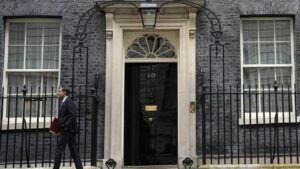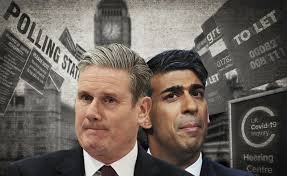UK General Election 2024: What You Need to Know
On May 22, 2024, Prime Minister Rishi Sunak announced a general election to be held on July 4, 2024. This decision was made in accordance with the Dissolution and Calling of Parliament Act, which replaced the Fixed-term Parliaments Act in 2022. The prime minister had the flexibility to call the election at any time before December 17, 2024, which marks five years since the last general election.
The Process of Dissolution
Once the election is called, Parliament will continue to sit until it is either dissolved or prorogued (and then dissolved) – whichever comes first. This period is known as ‘wash-up,’ which typically lasts for a few days. During this time, Parliament rushes to pass any unfinished business before dissolution. Any uncompleted business will not enter into law and cannot be continued into the next Parliament.
Dissolving Parliament is a royal prerogative, exercised on the advice of the prime minister. Once dissolved, all business in the House of Commons comes to an end, and every seat in the House of Commons becomes vacant, meaning there are no longer any MPs. Government ministers remain in post until a new government is formed after the election, while members of the House of Lords retain their positions, but all business in the House ends.

Polling Day and the Pre-Election Period
Polling day takes place 25 working days after Parliament is dissolved. Weekends, Christmas Eve, and bank holidays do not count as working days. This means there are 35 days between dissolution and polling day on Thursday, July 4. The pre-election period, previously known as purdah, restricts government activity during the campaign to ensure public money is not used to support the party in power and to maintain the impartiality of the civil service.
Manifestos and TV Debates
There is no set date for manifestos to be launched, but they are typically released between 18 and 29 days before the election. Televised debates with party leaders or other politicians are a relatively new feature of UK election campaigns. Their format and timing are negotiated between political parties and broadcasters, and there is no obligation for parties to participate.

Voting and Polling Day
Voting can be done in person at polling stations on July 4 or by post before this date. Polling stations open at 7 am and close at 10 pm. For the first time in a general election, photographic ID will be required for in-person voters. Once voting closes, an exit poll is announced, which is a survey of in-person voters taken at a sample of around 150 constituencies in England, Scotland, and Wales. Exit polls have correctly predicted the largest party on every occasion since 1974.
The UK general election 2024 is a significant event that will shape the country’s future. Understanding the process, from dissolution to polling day, is crucial for voters and political enthusiasts alike. As the campaign unfolds, we can expect to see manifestos launched, TV debates held, and political parties vying for the public’s support. Ultimately, the outcome will depend on the choices made by the British people on July 4.
Discover more from NewsPour
Subscribe to get the latest posts to your email.




Let your voice be heard! Share your thoughts and ignite discussions.